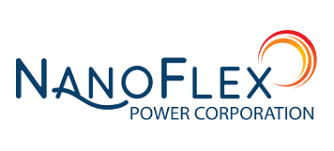– Program aimed at more than doubling the power of current Army solar modules within the same footprint.
– Addresses critical Army requirements for portable power – reduce physical burden, reduce forward logistics, and extend mission duration.
– Cost targets achieved by reducing the production cost of ultra-high efficiency compound semiconductor solar cells through patented wafer re-use technologies.
PR Newswire, OPVS
SCOTTSDALE, Ariz., June 19, 2017
SCOTTSDALE, Ariz., June 19, 2017 /PRNewswire/ — NanoFlex Power Corporation (“NanoFlex”) (OTCQB: OPVS), a developer of advanced photovoltaic technologies, today announced that it is part of a consortium that was awarded a $6.5 million contract from the Army Research Laboratory’s Army Research Office to develop high power, flexible, and lightweight solar modules for portable power applications with more than double the power of current flexible solar modules within the same footprint at a competitive procurement cost on a dollars per Watt basis. The consortium consists of NanoFlex, SolAero Technologies (“SolAero”), a leading manufacturer of high efficiency solar cells, the University of Michigan (“UM”), and the University of Wisconsin (“UW”).
As part of the program, NanoFlex and SolAero will collaborate to incorporate the patented non-destructive epitaxial lift off (“ND-ELO“) process and related technologies into SolAero’s fabrication process to reduce the production cost of ultra-high efficiency compound semiconductor solar cells. Invented by UM and exclusively licensed by NanoFlex, ND-ELO technology has the potential to substantially reduce production costs by enabling reuse of the expensive wafer substrate. NanoFlex will then design and integrate these ultra-high efficiency solar cells into high power, flexible, and lightweight solar module prototypes for portable Soldier power applications. Finally, UM and UW will evaluate new compound semiconductor growth processes to enable further cost reduction.
This program addresses a critical need within the Army, with Soldiers facing a widening energy gap as they are equipped with increased electronic equipment. Currently small units lack the ability to harvest sufficient power while conducting extended operations. These high power, flexible, and lightweight solar modules can be used by Soldiers to recharge batteries and power other electronic equipment, providing the ability to operate independently at a sustained operational tempo for increased periods, over greater distances. The thin and flexible design can be folded into a compact, lightweight package Soldiers can stow and carry into the field and interoperate with the Army’s Squad Power Manager (“SPM”) and Universal Battery Charger (“UBC”) systems.
“Until now, high performance compound semiconductor solar cells have not been available to the Army at reasonable prices. This program will enable the development and use of TRL-7 flexible solar module prototypes with more than twice current power performance at a competitive price to the Army. This technology can provide an immediate and direct benefit to the warfighter, reducing physical burden, reducing forward logistics, and extending mission duration,” said Dean Ledger, Chief Executive Officer of NanoFlex. “We are also excited for the sizeable non-military applications for these products for use by non-government organizations for emergency preparedness and response and outdoor enthusiasts for recreational activities.”
The four-year contract was awarded by the U.S. Army Research, Development, and Engineering Command (“RDECOM”), Army Research Laboratory’s Army Research Office to SolAero, with NanoFlex, UM, and UW participating as subcontractors. The project is under the U.S. Army Manufacturing Technology (“ManTech”) Program, which supports transition of manufacturing technologies and affordable technical capabilities to address the highest priority needs of the Warfighter through demonstration of effective, efficient and adaptable processes. The Army’s transition sponsor for this effort is Program Executive Office (“PEO”) Soldier, Project Manager Soldier Warrior (“PM SWAR”). PM SWAR is responsible for the acquisition of integrated Soldier systems designed to increase Soldier’s situational awareness and combat effectiveness, decrease combat load, and improve mission flexibility.
About NanoFlex Power Corporation
NanoFlex Power Corporation is engaged in the research, development, and commercialization of advanced photovoltaic technologies that enable thin-film products with industry-leading efficiencies, light weight, flexibility and lowest total system cost. NanoFlex’s sponsored research programs at USC, Michigan and Princeton University have produced an extensive patent portfolio covering flexible, thin-film photovoltaic technologies. Pursuant to its sponsored research agreements, NanoFlex has obtained the exclusive worldwide license and right to use and sublicense all intellectual property resulting from the Company’s sponsored research programs. For more information, visit www.nanoflexpower.com.
About SolAero Technologies Corp.
SolAero Technologies is a leading provider of satellite solar power solutions and precision aerospace structures to the global space markets, encompassing a wide array of applications including civil space exploration, science and earth observation, defense intelligence and communication, and commercial telecommunications industries. The business was founded in 1998 and is headquartered in Albuquerque, New Mexico, USA. For more information about SolAero, visit https://solaerotech.com/
Caution Regarding Forward Looking Statements
Certain statements in this news release are forward-looking, including (without limitation) expectations or guidance respecting commercialization. Undue reliance should not be placed on such forward-looking statements because the matters they describe are subject to known and unknown risks, uncertainties and other unpredictable factors, many of which are beyond the Company’s control. The Company’s actual results, performance and trends could differ materially from those indicated or implied by such statements as a result of various factors, including (without limitation) its continuing research and development efforts and acceptance of new technologies in the marketplace and other factors, as well as by factors applicable to most companies such as general economic, competitive and other business and civil conditions. Information regarding certain of those and other risk factors and cautionary statements that could affect future results, performance or trends are discussed in the Company’s most recent annual report on Form 10-K, quarterly reports on Form 10-Q, and other filings made with the Securities and Exchange Commission from time to time. All of the Company’s forward-looking statements are expressly qualified by all such risk factors and other cautionary statements.











